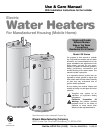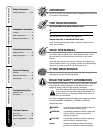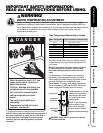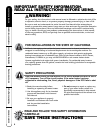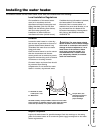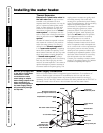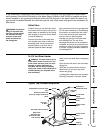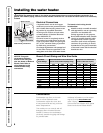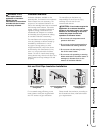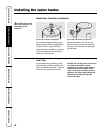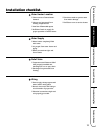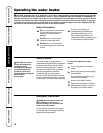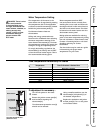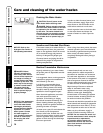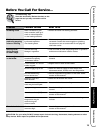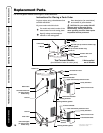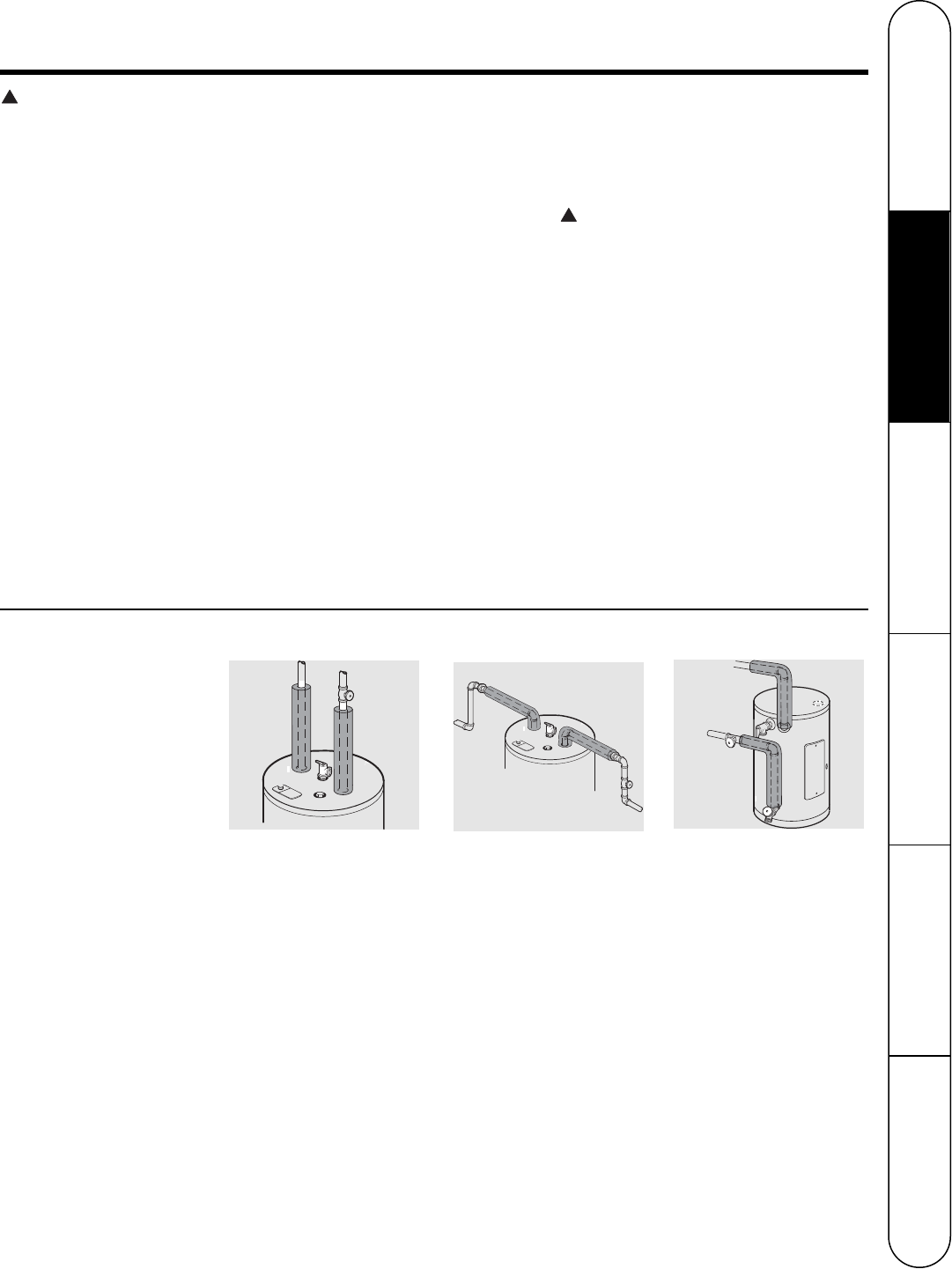
9
Insulation Blankets
Insulation blankets, available to the
general public, for external use on electric
water heaters are not necessary. The
purpose of an insulation blanket is to
reduce the standby heat loss encountered
with storage tank heaters. This water
heater meets or exceeds the National
Appliance Energy Conservation Act
standards with respect to insulation
and standby loss requirements making
an insulation blanket unnecessary.
The manufacturer’s warranty does not
cover any damage or defect caused by
installation, attachment or use of
any type of energy saving or other
unapproved devices (other than those
authorized by the manufacturer) into,
onto or in conjunction with the water
heater. The use of unauthorized energy
saving devices may shorten the life of the
water heater and may endanger life and
property.
The manufacturer disclaims any
responsibility for such loss or injury
resulting from the use of such
unauthorized devices.
CAUTION: If local codes require the
application of an external insulation
blanket to this water heater, pay careful
attention to the following so as not to
restrict the proper function and
operation of the water heater:
● Do not cover the temperature and
pressure relief valve.
● Do not cover jacket access panels to
thermostats and heating elements.
● Do not cover the electrical junction
box of the water heater.
● Do not cover the operating or warning
labels attached to the water heater or
attempt to relocate them on the
exterior of insulation blanket.
!
Hot and Cold Pipe Insulation Installation
For increased energy efficiency, some
water heaters have been supplied with
two 24” sections of pipe insulation.
Please install the insulation, according to
the illustrations above, that best meets
your requirements.
WARNING:
If local
codes require external
application of insulation
blanket kits the
manufacturer’s instructions
included with the kit must
be carefully followed.
!
R
E
L
I
E
F
V
A
L
V
E
C
O
LD
H
O
T
Typical vertical piping
arrangement
R
E
L
I
E
F
V
A
L
V
E
C
O
L
D
H
O
T
Typical horizontal piping
arrangement
Typical side piping
arrangement
Safety Instructions Installation Instructions Operating Instructions Care and Cleaning Troubleshooting Tips Customer Service



